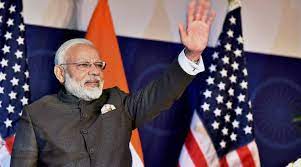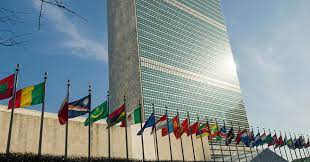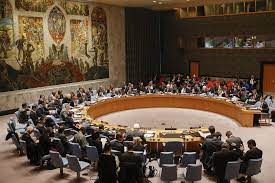Hiroshima: On Sunday, while addressing a G7 session in Hiroshima, Prime Minister Narendra Modi strongly called for United Nations reform. He emphasized that the United Nations and the Security Council would remain merely a “talk shop” if the organization did not reflect the realities of the present world.

On behalf of the G7 session, Modi also shared why there are requirements for several forums that deliberate the issues about peace and stability if the UN was formed to deal with and handle these challenges.
Modi asked, “Why is it necessary to discuss peace and stability in various conferences? The United Nations, initially created to promote peace, is failing to prevent conflicts today. This issue requires analysis”
Moreover, he questioned the UN on the platform, asking why even the UN has not accepted the definition of terrorism. He said, “The institutions that were created in the last century are not in line with the system of the twenty-first century.” Modi states that the UN is far from its agenda.
In a broader sense, Modi vocalizes the view that the UN does not reflect and address the current global reality.
He justified his call for reform by arguing that “the UN does not reflect the reality of the present, which is why reform is needed to transform it into a more effective institution.”
Modi reiterated that the UN will also have to represent and become the voice of the Global South. “If this continues, the UN and the Security Council will merely serve as platforms for discussions, endlessly talking about ending conflicts,” he emphasized.
The government has a strong determination regarding UN reforms. The government has also been strongly pursuing a permanent position/seat at the UN Security Council (UNSC). At present, the UNSC includes five permanent members and ten non-permanent member countries selected by the UN General Assembly for a two-year term.
The permanent members of the UNSC are the UK, Russia, the United States, France, and China, and these countries have the right to “veto” any substantial resolution brought to the council. There is a significant demand for increasing the number of permanent members following the current global reality and situations. Strong demand is arising in this matter.
India is one of the inevitable contenders for permanent membership of the UNSC, while the others are Brazil, South Africa, Germany, and Japan. All these counties have the primary responsibility to maintain peace and security.
United Nations
The United Nations has a vast history and is an international organization composed of member states from around the world. The primary requirement for a country to become a member of the UN is that it must be independent. The United Nations was established in 1945 during the Second World War with 51 founding member states. These 51 states signed the UN Charter, officially becoming the founding members of the UN.

The number of independent countries has increased significantly since then, particularly with the end of colonization and the breakup of the USSR. Currently, the UN has 193 member states, making it the largest international institution. Antonio Guterres, the current Secretary-General of the UN, serves as the ninth Secretary-General.
United Nations Security Council (UNSC)

The UNSC is a principal organ of the United Nations and is assigned the primary responsibility of maintaining global security and peace. The council has 15 members, with each member having one vote. All council members are obligated to adhere to and comply with the decisions of the council.












